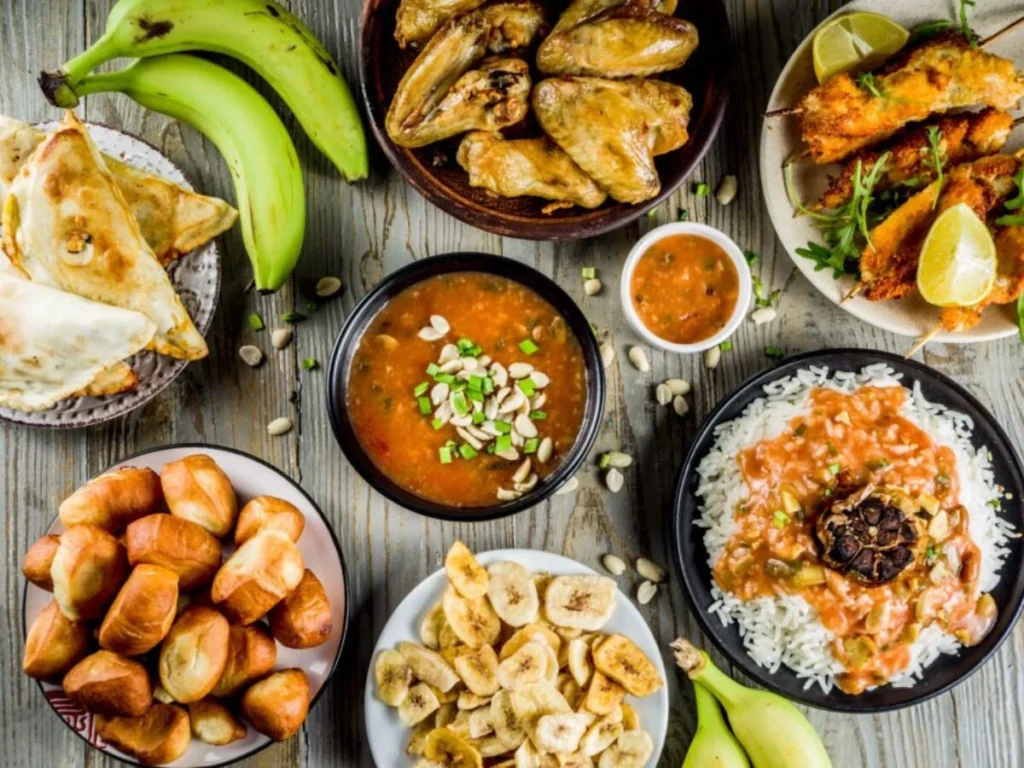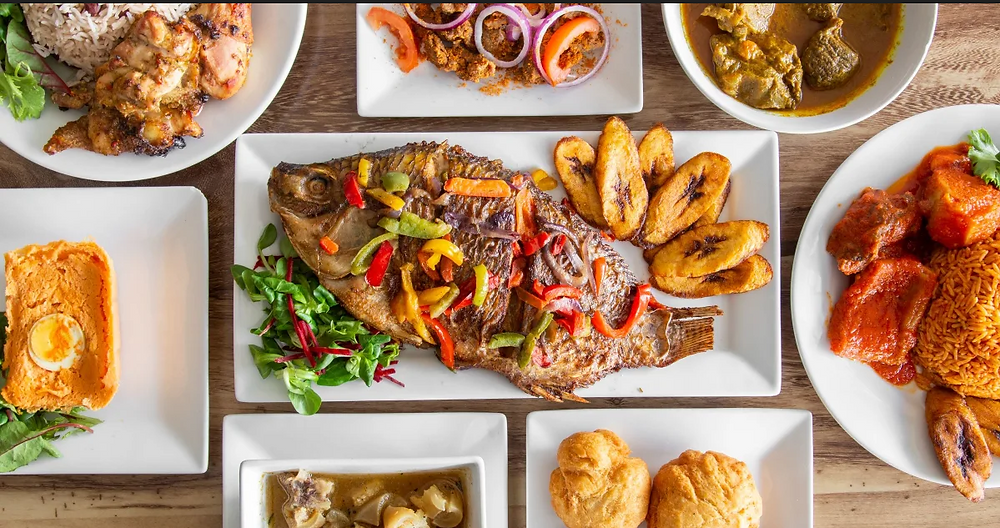book your flight, hotel and car rental here
Embarking on culinary journeys through Africa unveils a tapestry of flavors, aromas, and traditions that reflect the continent’s rich cultural heritage. From the spicy aromas of North African tagines to the savory stews of West Africa, each region offers a unique culinary experience that tantalizes the taste buds and celebrates the diversity of African gastronomy.
The Essence of African Cuisine At the heart of African cuisine lies a deep connection to the land, with ingredients sourced from the fertile soils and bountiful waters of the continent. Staples such as grains, tubers, and legumes form the foundation of many African dishes, while spices and herbs add depth and complexity to flavor profiles. Whether enjoyed in a bustling market stall or a fine dining establishment, African cuisine is a celebration of community, culture, and tradition.
North African Delights: Exploring the Flavors of the Maghreb
The culinary traditions of North Africa are as diverse as the landscapes that stretch from the shores of the Mediterranean to the sands of the Sahara. In Morocco, the tantalizing aroma of spices fills the air as tagines simmer slowly over open flames, infusing meats and vegetables with a symphony of flavors. Meanwhile, in Tunisia, fiery harissa adds a kick to couscous dishes, while fresh seafood delights the senses along the coast.
West African Comfort Food: From Jollof Rice to Fufu
West African cuisine is renowned for its bold flavors and hearty dishes that satisfy both body and soul. Nigeria’s beloved jollof rice, cooked with tomatoes, peppers, and spices, is a staple at celebrations and gatherings, while Ghana’s fufu, made from pounded cassava or plantains, serves as a comforting base for savory stews and soups. With ingredients such as palm oil, yams, and groundnuts, West African cuisine reflects the region’s agricultural abundance and culinary creativity.
East African Spice Routes: A Fusion of Flavors from the Indian Ocean
The coastal regions of East Africa have long been influenced by trade routes that crisscrossed the Indian Ocean, bringing spices, fruits, and culinary techniques from distant lands. In countries such as Kenya, Tanzania, and Mozambique, dishes such as pilau rice, coconut-infused curries, and grilled seafood reflect this rich tapestry of flavors. Swahili cuisine, with its blend of African, Arab, and Indian influences, is a testament to the region’s vibrant cultural exchange.
Southern African Braai Culture: Grilling, Good Times, and Great Food
In Southern Africa, the tradition of the braai, or barbecue, holds a special place in the hearts of locals and visitors alike. Whether enjoyed in a backyard with family and friends or at a roadside stall overlooking the savanna, the aroma of sizzling meats and the crackle of flames evoke a sense of camaraderie and conviviality. From succulent grilled meats to hearty sides such as pap and chakalaka, the flavors of Southern Africa are best savored al fresco.
Preserving Culinary Heritage: From Farm to Table
As African cuisine gains recognition on the global stage, there is a growing movement to preserve culinary heritage and support local farmers and producers. From farm-to-table restaurants that showcase seasonal ingredients to community initiatives that empower women through food entrepreneurship, efforts are underway to celebrate and sustain Africa’s gastronomic traditions. By embracing traditional cooking methods, honoring ancestral recipes, and promoting culinary diversity, African communities are ensuring that the flavors of their heritage endure for generations to come.
book your flight, hotel and car rental here






















